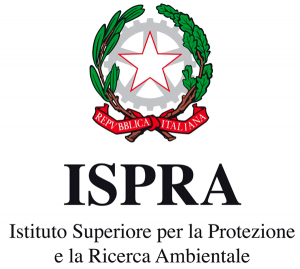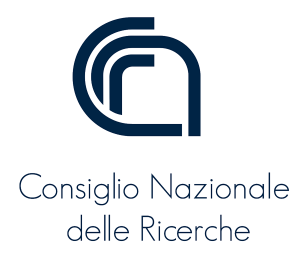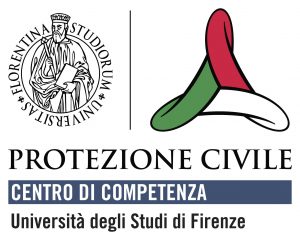Eucentre is a private non-profit foundation that pursues a mission of research, training and service provision in the field of earthquake engineering and, more generally, of risk engineering.
Founded in 2005 as an evolution of the European Centre for Training and Research in Earthquake Engineering already active in Pavia since 2003, it was established by four Founders, the University of Pavia, the University School for Advanced Studies IUSS of Pavia, the Italian Department of Civil Protection, the National Institute of Geophysics and Volcanology, to further develop the scientific, research and training expertise in the sector present in Pavia.
Eucentre is Centre of Competence of the Italian Department of Civil Protection, to which it provides emergency support, elaboration of risk scenarios and research activities for the improvement of Civil Protection activities.
CIMA Research Foundation (International Center on Environmental Monitoring) is a non-profit research organization committed to promote environmental sciences and engineering through scientific research and technological development within the fields of disaster risk reduction, civil protection and marine ecosystems conservation. Since 2012, CIMA is part of the Competence Centers network of the Italian Civil Protection System, supporting hydrometeorological and forest fire risk prevention; parallelly, CIMA provides scientific support regarding the liability of civil protection operators.
ReLUIS, Laboratories University Network of Seismic and Structural Engineering, is an Interuniversity Consortium founded in 2003 with the aim of coordinating the activities of the University Laboratories of Seismic Engineering, providing scientific, organizational, technical and financial support to the partner universities and promoting their participation in scientific and technological activities in the field of Seismic and Structural Engineering, in accordance with national and international research programs in this field. The activities carried out over the years by ReLUIS have allowed to acquire considerable technical /scientific skills in the field of seismic risk reduction and today the Consortium is among the major Centers of Competence of the Department of Civil Protection.
INGV -Istituto Nazionale di Geofisica e Vulcanologia– is the greatest Italian research institution dealing with Earth Sciences.
INGV mission spans from the study, surveillance and monitoring of geophysical phenomena to research on the relationship between geophysical-related processes and the environment. INGV runs monitoring networks, laboratories and observatories, and collects, studies and disseminates data in the field of seismology, volcanology, geodesy, geochemistry, and marine and atmosphere sciences. INGV acts under the supervision of the Ministry of University and Research (MUR).
INGV is the operational center for seismic surveillance and earthquake monitoring in Italy and is a part of the civil protection system as a center of expertise on seismic, volcanic, and tsunami risks. The INGV 24/7 nationwide seismic and volcanological surveillance service, tsunami alert is based on a dense and variegate network of institutional monitoring infrastructures.
INGV operates also in close collaboration with the Ministry of Environment, of Defence and of Foreign Affairs in the framework of national and international strategic projects
At European level, INGV is the representing entity and host institution for two ERICs- European Research Infrastructure Consortia hosted in Italy, namely EPOS-ERIC and the EMSO-ERIC.
The Italian National Institute for Environmental Protection and Research (ISPRA) is a public research body with legal personality under public law, technical, scientific, organizational, financial, managerial, administrative, patrimonial and accounting autonomy.
ISPRA is supervised by the Minister for the Ecological Transition. The Minister makes use of the Institute in the exercise of his powers, issuing general directives for the pursuit of institutional tasks.
Without prejudice to the performance of the tasks, services and activities assigned to the Institute pursuant to the legislation in force, the priorities relating to the additional tasks are also indicated in the context of the aforementioned directives, in order to prioritize the performance of the support functions to the Ministry of the Environment and the protection of the territory and the sea.
In the Official Gazette no. 179 of 3 August 2010, Decree 21 May 2010 n. 123 of the Ministry of the Environment and for the Protection of the Territory and the Sea “Regulation containing rules concerning the merger of APAT, INFS and ICRAM into a single institute, called the Higher Institute for Environmental Protection and Research (ISPRA ), pursuant to article 28, paragraph 3, of decree-law no. 112 of 25 June 2008, converted, with amendments, by law no. 133 of 6 August 2008 “.
ISPRA is the Competence Center of the Civil Protection Department (DPC) and operational structure of the National Civil Protection Service (SNPC). For the planning and operational management of specialist interventions to be implemented in crises and in the various phases of the emergency cycle, it ensures scientific technical support to the Department for Civil Protection, the Ministry of the Environment and the Protection of the Territory and del Mare (MATTM) and to all components and operational structures of the National Civil Protection Service (NCS), at central and peripheral level.
In particular, as part of the National Center for Crisis, Environmental Emergencies and Damage of ISPRA, the Operational Center for Environmental Surveillance, established pursuant to Law no. 225/2009, of Law no. 401/2001 and subsequent amendments and of Law no. 100/2012, takes care of the making and the dissemination of weather, marine and tidal forecasts for the management of the numerical modeling, in particular of transport, dispersion and chemical transformation, of pollutants. It takes care and provides, with the assistance of the Agencies of the National System for the Protection of the Environment (SNPA), for the management of data dissemination, necessary to provide scientific and technical support in situations of crisis and environmental emergencies. It carries out its activities, in close collaboration, with the MiTE and the Civil Protection Department of the Presidency of the Council of Ministers, also for the purposes referred to in the Directive of the President of the Council of 27 February 2004.
The Italian National Research Council (CNR) is the largest public research institution in Italy, the only one under the Research Ministry performing multidisciplinary activities.
Founded as legal person on 18 November 1923, CNR’s mission is to perform research in its own Institutes, to promote innovation and competitiveness of the national industrial system, to promote the internationalization of the national research system, to provide technologies and solutions to emerging public and private needs, to advice Government and other public bodies, and to contribute to the qualification of human resources.
In the CNR’s research world, the main resource is the available knowledge which means people, with their skills, commitment and ideas. This capital comprises more than 8.500 employees, of whom more than half are researchers and technologists. Some 4.000 young researchers are engaged in postgraduate studies and research training at CNR within the organization’s top-priority areas of interest. A significant contribution also comes from research associates: researchers, from Universities or private firms, who take part in CNR’s research activities.
UNIFI (Center for Civil Protection) is a university service centre instituted in 2018 at the University of Florence, with the main aim of monitoring and prevention of hydrogeological and volcanic risk. It takes its foundations from the experience gained over the years, since 1992, by the Department of Earth Science of the University of Florence, in the field of forecasting, prevention and management of emergencies related to landslides and volcanic activity. The Centre integrates its technical-scientific expertise and its research and development products in all the civil protection activities in which it is involved, constantly favoring the interdisciplinary relationships between research units within the Athenaeum and the National Department of Civil Protection. The Centre promotes the diffusion of the culture of civil protection, the information and knowledge about natural and anthropic hazards, and the improvement of the resiliency of communities, according to the targets of the UN Sendai Framework for Disaster Risk Reduction 2015-2030. It provides technical, cognitive, and operational support to all University structures in the field of civil protection, forecasting and prevention of natural and anthropogenic risks and emergency management.
UNIFI-CPC is, since its establishment in 2018, a Competence Center of the Department of Civil Protection for monitoring and prevention of hydrogeological and volcanic risk, as previously, from 2005 to 2018, the Department of Earth Science of the University of Florence was.
The National Institute of Oceanography and Applied Geophysics OGS is a public internationally oriented research Institute performing its mission at international level in the fields of Oceanography (physical, chemical, biological and geological), Applied and Exploration Geophysics, Seismology and Engineering Seismology. The Institute is organized in four scientific and technological divisions, namely Oceanography Section (OCE) and Geophysics Section (GEO), Seismological Research Centre (CRS) and Maritime Infrastructure Management (CGN). OGS is characterised by a multidisciplinary approach for studying onshore and offshore systems, and by a high operational capacity. OGS is a Centre of Competence for the National Civil Protection Department. The role of OGS as an international reference, in particular for Central Europe, for the prevention and mitigation of risks was recently recognized by the Trieste Declaration on Science signed by the Ministers of Research, Innovation and Higher Education, during the Central European Initiative Ministerial Conference on Science and Research.








